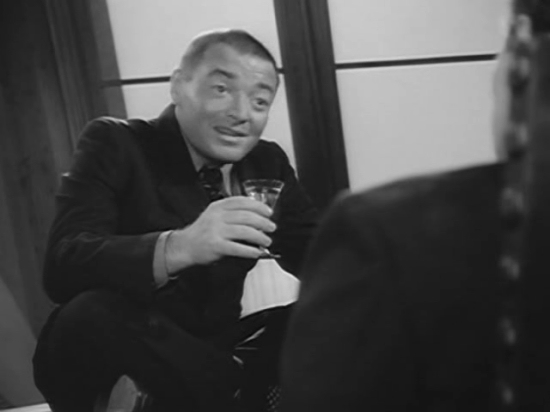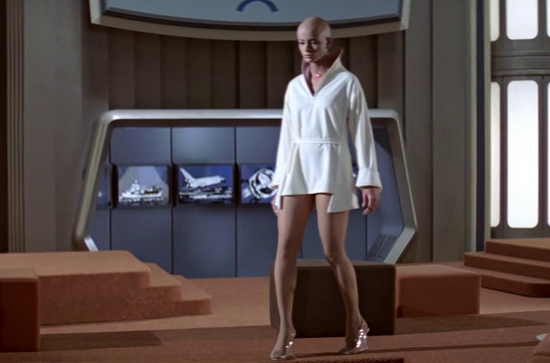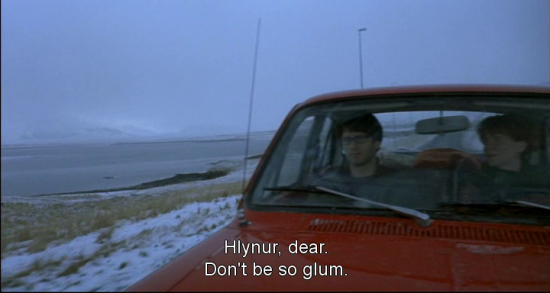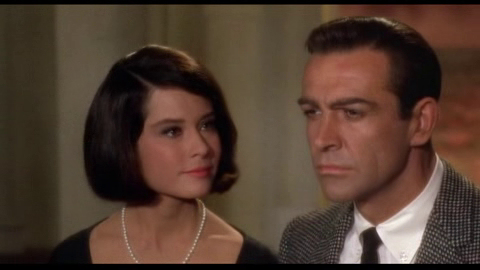
I haven't had as much time to read lately since I've been working on a comic, so I'm still slowly getting through my re-reading of Kerouac's On the Road. I read this bit a couple weeks ago;
For 35¢ each we [Kerouac and Neal Cassady] went into the beatup old movie and sat down in the balcony, till morning when we were shooed downstairs. The people who were in that allnight movie were the end. Beat Negroes who'd come up from Alabama to work in car factories on a rumour; old white bums; young longhaired hipsters who'd reached the end of the road and were drinking wine; whores, ordinary couples and housewives with nothing to do, nowhere to go, nobody to believe in. If you sifted all Detroit in a wire basket the beater solid core of dregs couldn't be better gathered. The picture was singing cowboy Roy Dean and his gallant White Horse Bloop, that was number one; number two doublefeature film was George Raft, Sidney Greenstreet and Peter Lorre in a picture about Istanbul. We saw both of these things six times each during the night. We saw them waking, we heard them sleeping, we sensed them dreaming, we were permeated completely with the strange grey Myth of the West and the weird dark Myth of the East when morning came. All my actions since then have been dictated automatically to my subconscious by this horrible osmotic experience. I heard big Greenstreet sneer a hundred times; I heard Peter Lorre make his sinister come-on, I was with George Raft in his paranoiac fears; I rode and sang with Roy Dean and shot up the rustlers innumerable times. People slugged out of the bottles and turned around and looked everywhere in the dark theatre for something to do, somebody to talk to. In the head everybody was guiltily quiet, nobody talked. In the grey dawn that puffed ghostlike about the windows of the theatre and hugged its eaves I was sleeping with my head on the wooden arm of a seat as six attendants of the theatre converged with their nights' total of swept-up rubbish and created a huge dusty pile that reached my nose as I snored head down--till they almost swept me away too.
So I wanted to track these movies down and watch them. Strangely, I can't find information about this "Roy Dean" anywhere--the best bet I can find is a 1937 movie called Sing, Cowboy, Sing which stars Tex Ritter and a minor character, a judge, is called Roy Dean. It could be Kerouac got details of this movie mixed up in his head, writing in 1951 in a famous marathon writing session about events in 1949. But the movie with George Raft, Sydney Greenstreet, and Peter Lorre, I figured, could only have been 1943's Background to Danger, a wartime adventure film directed by Raoul Walsh. I watched it last night.

The Wikipedia entry notes the making of the film was prompted by the success of Casablanca, and it does feel like it takes place in the same dimension--an American tough guy named Joe Barton (Raft) meets a strange Russian woman on a train in Turkey, is asked by her to hold sensitive documents since an American is less likely to be searched. She turns up dead and an okay espionage plot starts to spool out. The main difference between this film and Casablanca is its lack of romance and a corresponding lack of character depth for the lead.
Raoul Walsh made a few good films--my favourite probably being High Sierra, in which Ida Lupino and Humphrey Bogart have more of a love story than I've seen in any other Walsh picture I've seen. Mostly when romance is involved, its perfunctory window dressing for the action/adventure centrepiece. In Background to Danger, it's kind of ludicrous--Brenda Marshall's in the film as a Russian agent and sister to a fellow agent played by Peter Lorre. At the end of the film, Raft and Marshall are together at the airport and head for Cairo to, as Raft says, "cement Russian and American relations". This is less that thirty seconds before the film ends and it's the first hint we have that these characters had any interest in each other.

It's said Humphrey Bogart owed his career to George Raft constantly turning down roles Bogart was second choice for, though I'd say the fact that Bogart was eight hundred times the actor Raft was may also have had something to do with it. Raft is his usual totally bland in this movie, though the fact that he was a gangster in real life lends some reality to his fight scenes. When he smashes up a newspaper press, one does get the impression he's done something like it for real.

Sydney Greenstreet is great as usual, with his keenly crafted cadence, but performance-wise, the best reason to watch this movie is Peter Lorre, who's extraordinarily unflappable. He never panics, even at gunpoint, and every scene just seems to be a job he has to get out of the way before he can have his vodka.

Walsh is great with pacing and following action, so the movie's engaging, though it's hampered by a plot that doesn't make any sense. It's said it doesn't really matter what the MacGuffin is, just that everyone cares about it, but in this case the MacGuffin is a set of military plans everyone knows are forgeries that the Germans are trying to get a hold of so they can print them in the Turkish press to turn Turkey against Russia. Raft's character even remarks at one point that the Germans could always make new fake plans--he says he's only really following them so he can learn about all the players, but that doesn't explain why everyone else is ready to kill or die for them.
Certainly this isn't a movie I'd want to watch six times in a row . . .
Twitter Sonnet #399
A sapphire spoiled the Skittles bag.
Sugar stitches pentagrams on the Coke.
Poultry's politely invited to SAG.
Macaroni brakes are cheesy but broke.
Martian whipped cream dispersed on the orange wind.
Chasms cracked by coughing cats grow cherries.
Blue sailor letters are too light to send.
Feather canals choke with static ferries.
Yellow rind fields burn ether pulp to blue.
Pope populations squeeze mountains of lime.
Demon wigs grey in the gallows cut glue.
Os can offer all disks the displayed time.
Siamese digits jam the giant dials.
Operation noses shine for miles.






















































